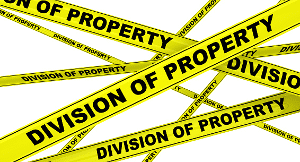
In Pennsylvania, as in other states, the concept of “no-fault” divorce is available to couples who want to terminate a marriage. The term can be a little confusing, as it suggests that you don’t have to state any reason for seeking a divorce. You must still state ground for your divorce, but there’s no requirement that you allocate blame to one party or the other.
No-Fault Divorce
In a no-fault divorce proceeding, the parties agree that neither spouse caused the divorce. As a general rule, the grounds stated in a no-fault divorce proceeding are that there has been an “irretrievable breakdown” of the marriage, and that it cannot be saved.
No-fault divorce proceedings can take a couple different courses:
- The divorce may be by mutual consent—Here, both parties agree that the marriage is irretrievably broken, that 90 days have passed since the complaint was filed, and that they consent to the divorce
- Unilateral no-fault divorce—In this situation, one party files the petition and also submits and affidavit attesting that the parties have not lived together for at least two years and that the marriage cannot be fixed. If the other party does not object to the allegations, the divorce may be granted, even though there’s technically no consent to the divorce.
At-Fault Divorce
Though you don’t have to assign blame in a divorce proceeding, there can be benefit in the division of property or in other aspects of the divorce if you can show the other party to have contributed to the divorce. The specific grounds established for divorce in Pennsylvania include:
- Adultery or bigamy
- Humiliation of an innocent spouse, such that marriage is no longer tenable
- Domestic violence or cruelty, including mental cruelty
- Abandonment of the relationship for at least one year
- Imprisonment for two or more years after conviction of a crime
Contact Attorney Joanne E. Kleiner
Let us help you protect your rights. contact our office online or call us at 215-886-1266 to schedule a confidential consultation. We will help you stay focused on the issues that matter.
